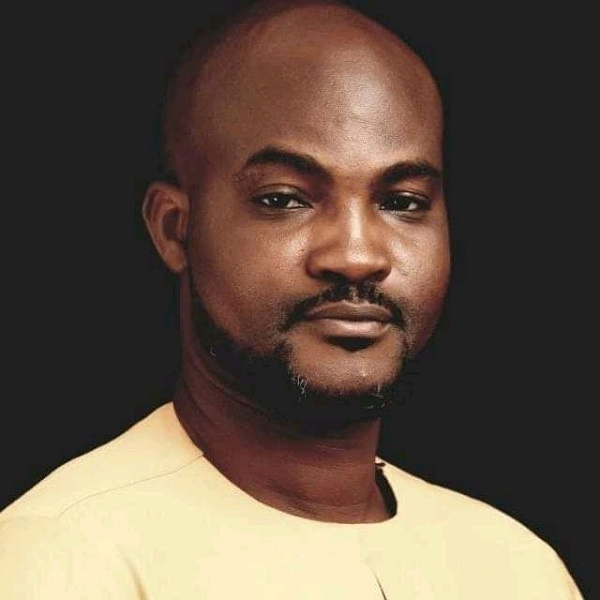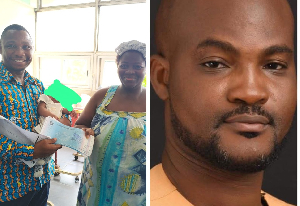In the bustle of Accra, where daily life often moves at a relentless pace, a story emerged from the Korle Bu Teaching Hospital that reminds us of the enduring power of compassion. It is the story of Madam Doris Ametepey, a nursing mother who found herself stranded in the hospital for three months after delivering her baby, unable to pay her medical bills. Her plight was worsened by abandonment, as her husband left her and the newborn soon after delivery, leaving her helpless and confined to the maternity ward. What could have been a tale of despair transformed into one of hope when Dzifa Gunu, the Chief Executive Officer of Ghana Digital Centres Limited, stepped in to settle her bills.
Doris had remained at the hospital’s maternity ward long after being discharged because she simply could not clear her medical expenses. Her situation worsened when her husband abandoned her and the newborn soon after delivery, leaving her helpless and confined to the ward. This paints a vivid picture of the emotional and financial turmoil she endured. For three months, she lived in uncertainty, unable to reunite with her family, her freedom curtailed by debt.
Touched by her plight, Mr. Gunu made immediate arrangements for her bills to be settled, ensuring her prompt discharge and reunion with her family. The donation was presented on his behalf by James Kanu Nartey-Oman, who commended the medical staff for their compassion and continuous care for mothers in need. In that moment, the CEO’s gesture became more than a financial transaction—it became a lifeline. Doris herself described the intervention as nothing short of divine. “I had no hope that any family member of mine could afford such huge medical bills. I kept praying for God’s help, and He has answered me through Mr Gunu,” she said tearfully.
Her words capture the depth of her despair and the magnitude of her relief. To be stranded in a hospital, with a newborn child, is to face a moment of profound vulnerability. The inability to pay bills does not only represent financial hardship; it represents confinement, isolation, and the erosion of dignity. Doris’s appeal to God reflects the desperation of someone who had exhausted all human options. When help finally arrived, it was not just a settlement of debt—it was the restoration of hope.

This story resonates because it highlights the intersection of leadership and empathy. Too often, leaders are judged by their ability to manage institutions or deliver profits. Yet true leadership is also about recognizing the humanity in others and responding to their needs. By choosing to intervene, Mr. Gunu demonstrated that compassion can be a guiding principle in leadership. His decision was not mandated by policy, nor was it a requirement of his office. It was a voluntary act, rooted in the recognition that sometimes, the most impactful thing one can do is to help another person in distress.
Madam Doris had delivered her baby through a caesarean section and endured months of distress while confined to the hospital. She described her ordeal as depressing and appealed to well-meaning individuals and organisations to come to the aid of other mothers in similar situations.
Her appeal is a reminder that her story is not unique. Across Ghana, and indeed across many parts of Africa, families face similar struggles with healthcare costs. When patients cannot afford their bills, they may be detained in hospitals, unable to leave until payment is made. This practice, while intended to ensure accountability, often traps families in cycles of hardship.
What makes this act powerful is not only the immediate relief if provided but also the ripple effect it creates. When leaders act with compassion, they inspire others to do the same. Communities begin to see that kindness is not a weakness but a strength, capable of transforming lives.
Mr. Gunu’s intervention may encourage other individuals, organizations, and institutions to consider how they can support those in need. It raises important questions: How can businesses contribute to social welfare beyond their immediate mandates? How can individuals with resources step in to bridge the gaps left by systemic challenges?
The symbolic power of this act cannot be overstated. In Ghanaian culture, community and solidarity are deeply valued. The idea that “I am because we are” is embedded in philosophies of interconnectedness and mutual care. By stepping in to help Doris, Mr. Gunu embodied this philosophy in action. His gesture was not just about money—it was about affirming the dignity of another human being. It was about saying, “You are not alone. Your struggle matters. Your wellbeing matters.”
Mr. Nartey-Oman commended the medical staff of the Korle Bu Teaching Hospital for their compassion and continuous care for pregnant women and nursing mothers in need. He noted that Mr. Gunu’s gesture formed part of his commitment to touching lives and promoting kindness and social responsibility beyond the digital sector. This statement is significant because it situates the act within a broader vision of leadership. It suggests that compassion is not an isolated event but part of a deliberate commitment to making a difference.

As readers reflect on this story, they are invited to consider their own capacity for compassion. Not everyone can settle hospital bills, but everyone can extend kindness in some form. Whether it is offering support to a neighbor, volunteering time to a community project, or simply listening to someone in distress, acts of compassion matter. They create ripples that extend far beyond the immediate moment, shaping the fabric of society in ways that statistics and policies cannot capture.
In the end, the story of Madam Doris Ametepey and Mr. Dzifa Gunu is not just about one act of kindness. It is about the reminder that humanity thrives when we choose to care for one another. It is about the recognition that leadership is not only about authority but about empathy. And it is about the hope that such gestures will inspire a culture of compassion, where no one is left stranded in their moment of need.
Source: Ghana Digital Centres CEO settles hospital bills of stranded nursing mother


